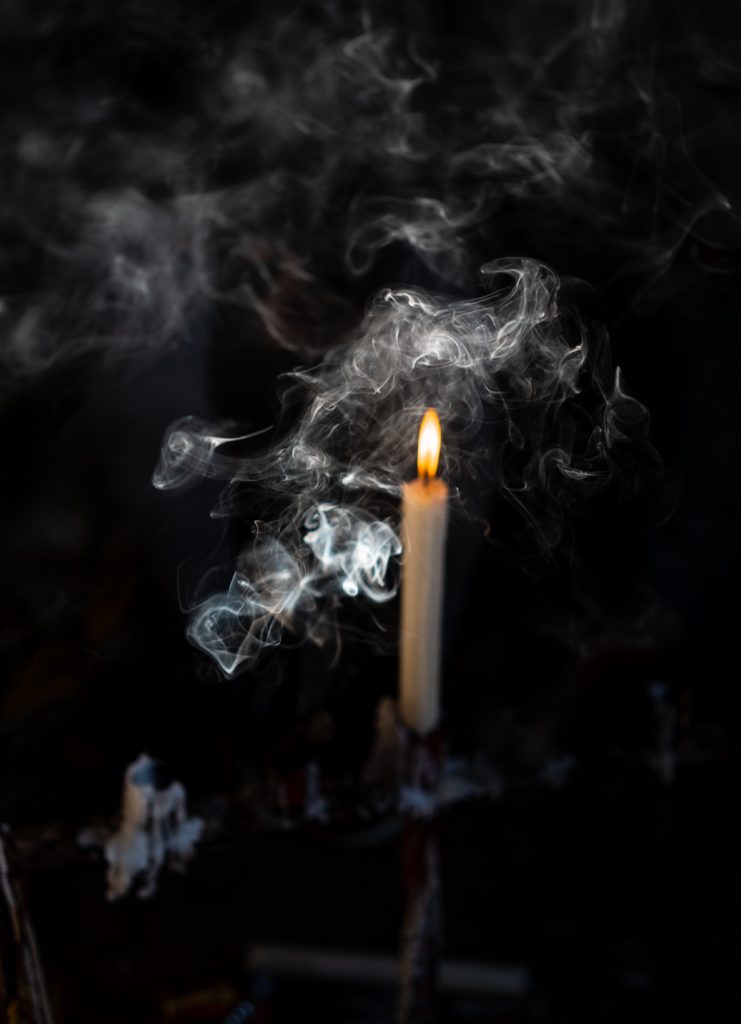
literal and figurative
In the Bible, darkness and light are used both literally and figuratively, marking high points of Scripture. A deep darkness becomes the ninth plague (Ex 10: 20ff.) when Pharaoh continues to block Moses’ demand that he let Israel go: “Then the LORD said to Moses, ‘Stretch out your hand toward heaven that there may be darkness over the land of Egypt, a darkness to be felt’” (Ex 10: 21, my emphasis). The darkness is literal but supernatural and troubles only the Egyptians. By contrast, Goshen, where Israel is living, has normal light.
the contrast
Another literal darkness falls as God reveals his purposes to Abraham, then still known as Abram: “As the sun was going down, a deep sleep fell on Abram. And behold a dreadful and great darkness fell upon him.” Speaking in the darkness, God describes the borders of the land he has promised to give Abram: “When the sun had gone down and it was dark, behold, a smoking fire pot and a flaming torch passed between the pieces of the sacrifice. On that day, the LORD made a covenant with Abram” (Gen 15: 12, 17-18). The fire and flames contrast vividly with the supernatural darkness covering the sleeping Abram.
the Messiah
Prophecies, gospel records, and the letters of Paul announce the Messiah with references to darkness and light. The contrast is striking. Matthew quotes a Messianic prophecy of Isaiah: “The people dwelling in darkness have seen a great light, and for those dwelling the land and shadow of death, on them a light has dawned” (Matt 4: 16; Isa 9: 2).
“the glory of your people, Israel”
Zechariah prophesies at the birth of his miracle baby, the great prophet to be known as John the Baptist, and exults over “the tender mercy of our God, whereby the Dayspring from on high has visited us / To give light to those who sit in darkness and in the shadow of death” (Luke 1: 78-79). The devout old man, Simeon, holds the infant Jesus and prophesies: “My eyes have seen your salvation which you have prepared before the face of all peoples, / A light to enlighten the Gentiles/ And the glory of your people Israel” (Luke 2: 30-32).
the true light
John begins his gospel with a prologue introducing the Messiah. He too employs a figure of light and darkness: “In him was life, and the life was the light of men. The light shines in the darkness, and the darkness has not overcome it . . .. The true light, which gives light to everyone, was coming into the world” (John 1: 5, 9-11).
betrayal
John moves with great drama toward the conclusion of his record when he describes the final Passover meal. Jesus tells the Twelve, “One of you will betray me.” It is the one with whom he is sharing “a morsel of bread.” Jesus gives the bread to Judas, and John writes: “Then after [Judas] had taken the morsel, Satan entered into him. Jesus said to him, ‘What you are going to do, do quickly. . . . So after receiving the morsel of bread, he immediately went out. And it was night” (John 13: 27, 30 my emphasis). The darkness is literal and more than literal. Very soon, Jesus will accost those coming to arrest him: “When I was with you day after day in the temple, you did not lay hands on me. But this is your hour, and the power of darkness” (Luke 22: 53). The darkness that falls as Jesus dies on the cross is literal but supernatural: “It was now about the sixth hour, and there was darkness over the whole land until the ninth hour as the sun’s light failed . . .. Then Jesus, calling out with a loud voice, said. ‘Father, into your hands I commit my spirit!’” (Luke 23: 44-46). Luke adds, “the temple curtain was torn in two.”
in the dark
Three days later, “while it was yet dark” the women come and find Caesar’s seal also torn apart, the huge circle of stone closing the tomb rolled aside, and no one around. This darkness-before-dawn is both literal and figurative, heavy with significance. One of the women, Mary Magdalene, encounters Jesus, but she is so completely in the dark as to the meaning of what she sees that she mistakes Jesus for the gardener. She asks about the body of Jesus, but only when he speaks her name does the light dawn. He is alive!
the armor of light
Paul sees our life in Christ as light and declares to the Romans: “For salvation is nearer to us now than when we first believed. The night is far gone; the day is at hand. So then let us cast off the works of darkness and put on the armor of light” (Rom 13: 11b-12).
from The Edgefield Advertiser, oldest newspaper in South Carolina
May 5, 2021
with thanks for the great image to kristoffer-jensen-1293565-unsplash
Recent Comments